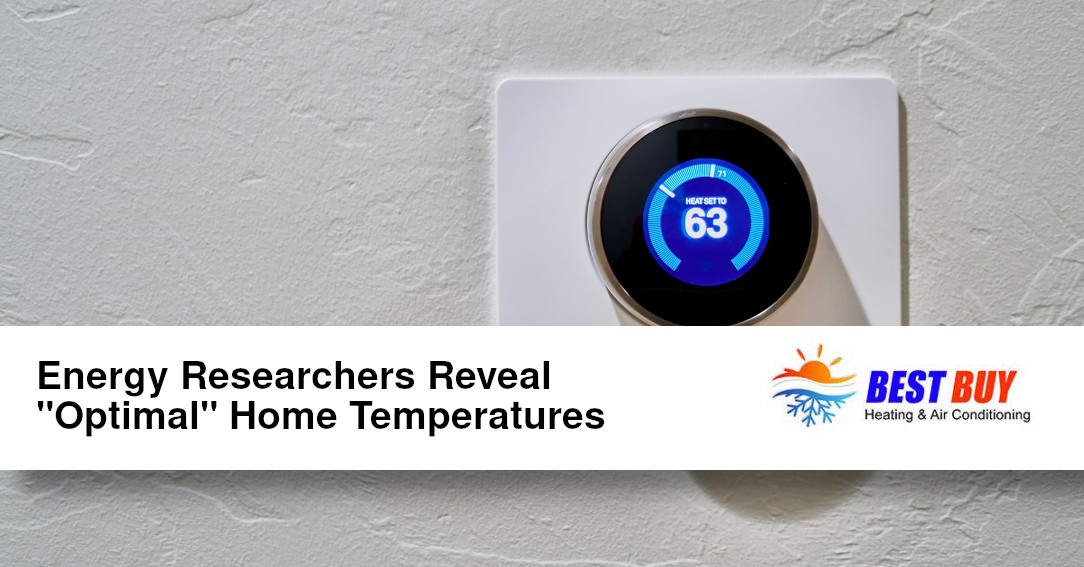Here in Colorado, we get the “best” of both worlds—hot summers and cold winters!
When our homes heat up or get too chilly, what’s the first thing most people do? That’s right: reach for the thermostat and turn it up or down. While we always expect that our energy bills will go up during weather extremes, what most homeowners don’t know is that the Department of Energy has identified the “optimal” energy-saving temperatures for your home—in effect, what their research has indicated to be the balance between comfort and cost.
Let’s take a look at the research and what it means for keeping your energy costs down during the summer and winter:
What is the Optimal Home Temperature for Energy Efficiency and Comfort?
As it turns out, the optimal home temperature is a range of temperatures—and that makes sense, since everyone has different preferences. Ultimately, the findings suggest that most people are comfortable between 73 and 79 degrees and that the most energy efficient temperature is 78 degrees during the summer.
Regardless of Your Preferred Home Temperature, THIS is How to Stay Cool During Summer in Colorado Without Crazy Energy Bills
Instead of agonizing over what temperature to keep your home, there are really three things you can do that will likely have a much, much bigger impact on your annual energy costs:
#1 – Get a programmable thermostat.
#2 – Replace your air filters regularly.
#3 – Get annual maintenance for your HVAC system.

If you consistently do the above three things, you’ll be way ahead of the game compared to someone who runs their air conditioning during the summer at the “optimal” 78 degrees. That’s not to say that running your A/C at a reasonable level isn’t effective—it’s just not the end-all-be-all of energy savings.
The first item is to get a programmable thermostat. The reason this is such a great idea is because a programmable thermostat will allow you to have much better control over the temperature in your home. These devices are affordable, widely available, and may even be available with energy rebates. You’ll be able to set the temperature for your home during the daytime when you’re gone at work or school—which would likely be higher in the summer and lower in the winter—at night when you’re asleep, or weekends you spend out of the house.
Replacing your air filters regularly sounds like pretty basic advice, and it is, but it’s also one of the most effective things you can do as a homeowner to not only increase energy efficiency, but to improve air quality and extend the lifespan of your HVAC system. Replacing your filters is one of the easiest DIY projects around too, since all you need to do is remove the old filter, throw it out, and install the new one. Most filters can be changed out in less than ten minutes, and high quality replacements are cheap and can be found at nearly any hardware or department store.
Finally, having a regular HVAC inspection will perhaps be the best thing you can do for your system long-term; this is how problems are discovered while they’re still small and cheap to fix, rather than allowing them to continue to get worse and worse—and more and more expensive. Our team of professionals would be more than happy to come out to your home or business and perform a thorough-yet-affordable audit of your HVAC system. We can also give you energy saving advice and let you know about things you can do to improve the performance of your system.
The Statistics Don’t Like – Common Energy Saving Myths to Avoid

Just a quick note before we wrap things up—last month we published a blog post titled Do This, Not That: Air Conditioning Cost Saving Myths vs. Reality where we discussed the various myths that abound regarding energy savings. We’ll explain why shutting off your air conditioning while you’re gone can actually cost you more in some cases, the real reason you should run your ceiling fans (and when), and we’ll dispell an oft-misunderstood fact about thermostat settings. Give the post a read if you haven’t already!
How Best Buy Heating & Air Can Extend the Lifespan of Your HVAC System, Save You Money, and Help You Enjoy Your Summer
Please feel free to contact us at your earliest convenience to schedule your annual HVAC inspection. We’re more than happy to answer any questions you may have! You may use our online system to schedule a service appointment here.
